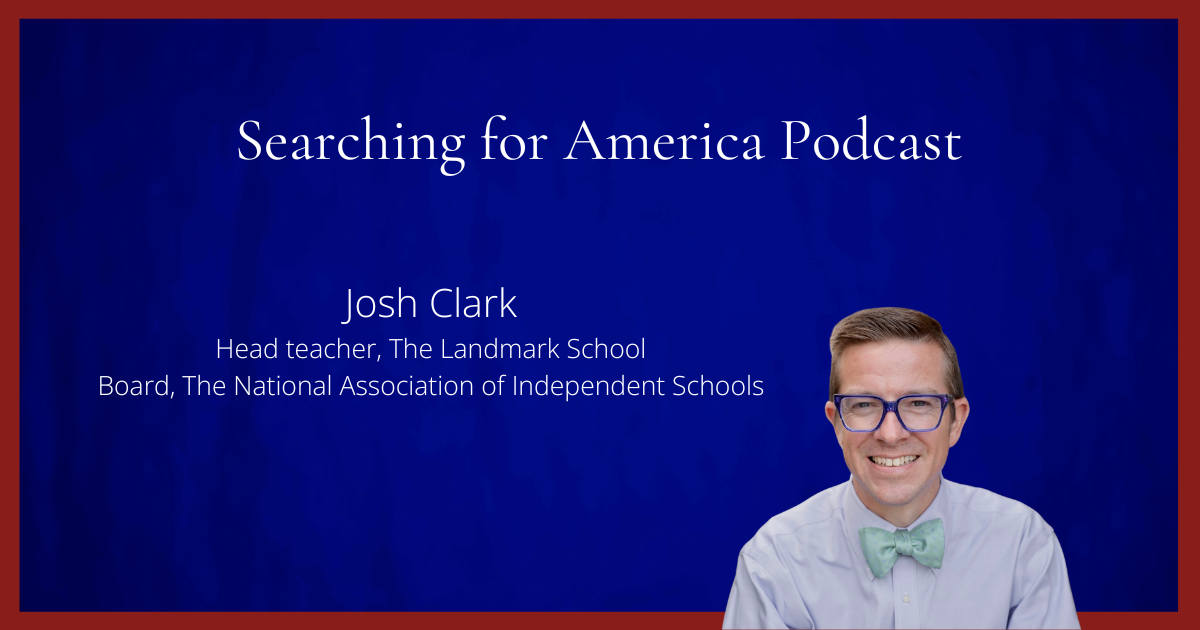Enemies can be perceived to be everywhere, even in classrooms.
There are many frontlines in America’s culture wars. In a divided country, enemies can be perceived to be everywhere, even in classrooms.
I can’t wait for you to listen to Josh Clark, who is a head teacher and on the board of the National Association of Independent Schools. He’s also a world expert on teaching dyslexic kids. Josh has a broad, bird’s-eye view of how identity politics and censoring self-righteousness has invaded classrooms.
“Us versus Them” thinking creates children who are scared of complexity or ambiguity. Josh is emphatic that teachers need to be trusted to teach multiple viewpoints without overprotective parents thinking their kids are being indoctrinated. No teacher, says Josh, goes to work to be underpaid, overworked and to “screw over” your kid.
I have been wanting to talk to author Sarah Smarsh for years because she is one of the few people on the national stage who can explain, with authenticity, about a part of America that is often overlooked and undervalued. Sarah grew up in a poor, white rural area of Kansas. Her mom gave birth to her when she was seventeen and she was raised by her grandparents on their farm. Her latest book is called Bone on Bone; Essays on America by a Daughter of the Working Class.
Donald Trump won over poor, white, working class folk in rural America because he has been able to channel their anger. Sarah and her family are not Trump voters - “Can’t stand the guy” - but she is also critical of Democratic Party which she believes ignored the pleas of large chunks of ordinary Americans who were struggling with the effects of globalization and the challenges of small-town life.
In Searching for America, I’m curious about stories and perspectives from places that are not New York or Washington.
Josh grew up in Tennessee. His dad was a prison warden and as a young boy he lived in the warden's house inside a federal penitentiary complex in Virginia. Josh’s first friend was a prisoner called Nelson. "Nelson was an inmate who worked in our yard, who'd smuggled cocaine into the country in a private plane in the 1970s. I was seven. I thought he walked on water. But it was interesting growing up in this dynamic of the industrial prison system."
Sarah writes with empathy about her grandmother’s dentures (all her teeth were removed in her twenties because she had no dental healthcare) and helping her grandparents harvest wheat or butcher their livestock. No matter if rural folks vote for Harris or Trump, Sarah helps us understand the deep sense of frustration felt by millions of Americans towards the “elites.”
American politics is more than polls. The election is about stories; which voters feel seen and heard and which voters feel invisible and angry. One group is going to outvote the other. I don’t want to be surprised again, like we were in 2016, so I’m trying to understand by listening.
Join me,
Robyn

